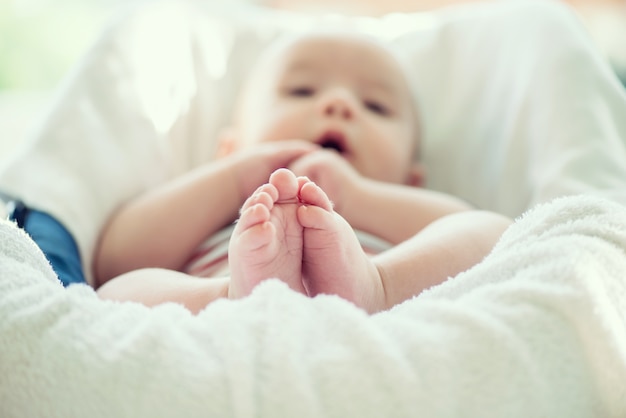 Source: bing.com
Source: bing.comThe birth of a baby is one of the most incredible and life-changing moments for a parent. In just a few short days, a newborn goes through a remarkable transformation as they adjust to life outside the womb. The first days of a baby’s life are critical for their development, and there are many things that parents can do to help their newborn thrive.
Table of Contents
The First Day
A baby’s first day of life is a time of incredible change and adaptation. In the first few hours after birth, a baby will start to transition from being in the womb to being outside in the world. This means that their body will have to adjust to new sensations and experiences, such as breathing air, seeing light, and feeling touch.
During the first day, a baby will also be monitored closely to ensure that they are healthy and stable. This may include checking their vital signs, performing blood tests, and assessing their overall health. Parents will also have the opportunity to bond with their newborn and begin establishing a feeding routine.
Feeding
Feeding is an essential part of a baby’s development in the first days of life. Breast milk is the best source of nutrition for a newborn, as it contains all of the essential nutrients and antibodies that a baby needs to grow and thrive. If breastfeeding is not possible, formula is a great alternative.
In the first few days of life, a baby may only consume small amounts of milk, but it is important to establish a feeding routine to ensure that they are getting enough nutrition. Newborns typically feed every two to three hours, and it is important to pay attention to their hunger cues, such as rooting, sucking, and fussiness.
Sleep
Sleep is critical for a baby’s development in the first days of life. Newborns sleep a lot, and it is important to allow them to sleep when they need to. In the first few days, a baby may sleep for up to 18 hours a day, but it is important to wake them up for feeding if necessary.
It is also important to ensure that a baby is sleeping in a safe environment. This means placing them on their back in a crib or bassinet with no pillows, blankets, or toys. The room should also be kept at a comfortable temperature.
Bonding
Bonding is essential for a baby’s development and can begin in the first days of life. Skin-to-skin contact is a great way to bond with a newborn and can help regulate their body temperature, heart rate, and breathing. Talking, singing, and cuddling are also great ways to bond with a baby.
Bonding with a baby can also help establish a sense of trust and security, which is important for their emotional development.
Conclusion
The first days of a baby’s life are critical for their development and require close attention and care from parents. By establishing a feeding routine, ensuring a safe sleeping environment, and bonding with their newborn, parents can help their baby thrive in these early days.
Remember, every baby is unique, and there is no one-size-fits-all approach to parenting. Trust your instincts and seek support from healthcare professionals if necessary.
Frequently Asked Questions
Q: Can newborns see and hear?
A: Yes, newborns can see and hear, but their vision and hearing are not fully developed. They can see objects and faces at a distance of about 8-10 inches and can hear high-pitched sounds.
Q: How often should I feed my newborn?
A: Newborns typically feed every two to three hours, but it is important to pay attention to their hunger cues and feed them when they are hungry.
Q: How much should my newborn be sleeping?
A: Newborns sleep a lot, and it is normal for them to sleep for up to 18 hours a day. However, it is important to wake them up for feeding if necessary.
Q: How can I bond with my newborn?
A: Skin-to-skin contact, talking, singing, and cuddling are great ways to bond with a newborn. It is also important to respond to their needs and provide a sense of security and trust.
Q: Is it normal for newborns to cry a lot?
A: Yes, it is normal for newborns to cry a lot. Crying is their way of communicating their needs and can be a sign that they are hungry, tired, or uncomfortable.
